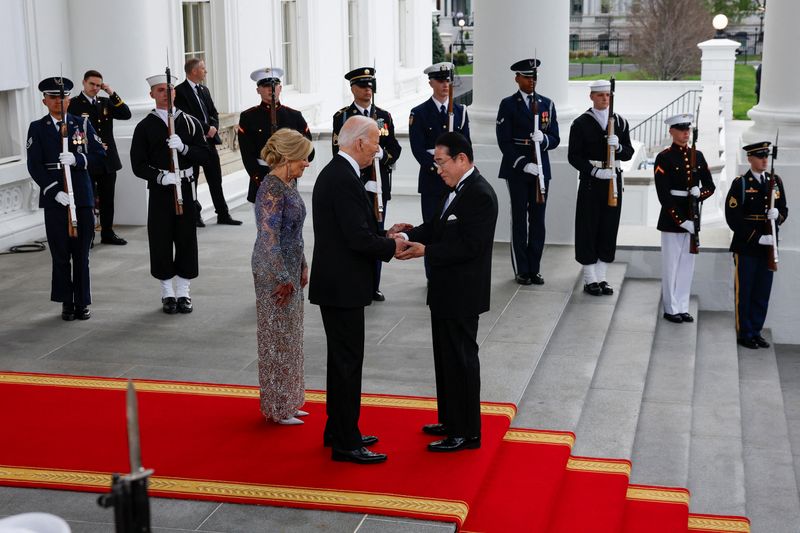TOKYO/WASHINGTON (Reuters) - The governments of the United States and Japan signalled support for a plan to build the first high-speed rail in the U.S. using Japanese bullet trains after their leaders met in Washington on Wednesday.
Reuters exclusively reported this week that President Joe Biden is seeking to revive interest in the project linking the Texas cities of Dallas and Houston and was likely to raise the issue during Prime Minister Fumio Kishida's state visit.
The project was among several named in a fact sheet published by the White House after the talks outlining "political understandings" that were affirmed during the visit.
"The U.S. Department of Transportation and Japan's Ministry of Land, Infrastructure, Transport and Tourism welcomed Amtrak's leadership of the Texas Central High Speed Rail Project, utilizing Shinkansen technologies," the fact sheet said.
"The successful completion of development efforts and other requirements would position the project for potential future funding and financing opportunities."
While advocates for the project, estimated to cost around $25 billion to $30 billion, hope political support can unlock new public and private cash to finally realise an idea that has been talked about for decades, it still faces potential hurdles in Texas and the U.S. Congress.
The 240 mile (380 km) rail link, which will be built and operated by Texas Central Partners and Amtrak, is expected to cut travel times between the cities to about 90 minutes, from three-and-a-half hours by car.
Japanese state lenders, including the Japan Bank for International Cooperation, have provided loans to help develop the project, which plans to procure "shinkansen" bullet train technology from Central Japan Railway.

Progress with the project would be a win for the Biden administration, which has pushed climate-friendly policies and rail investment.
But it has been opposed by some local groups over land and other concerns and is likely to draw criticism, particularly from hardline Republican lawmakers in the U.S. House of Representatives, who have objected to using public funds for rail projects in the past.